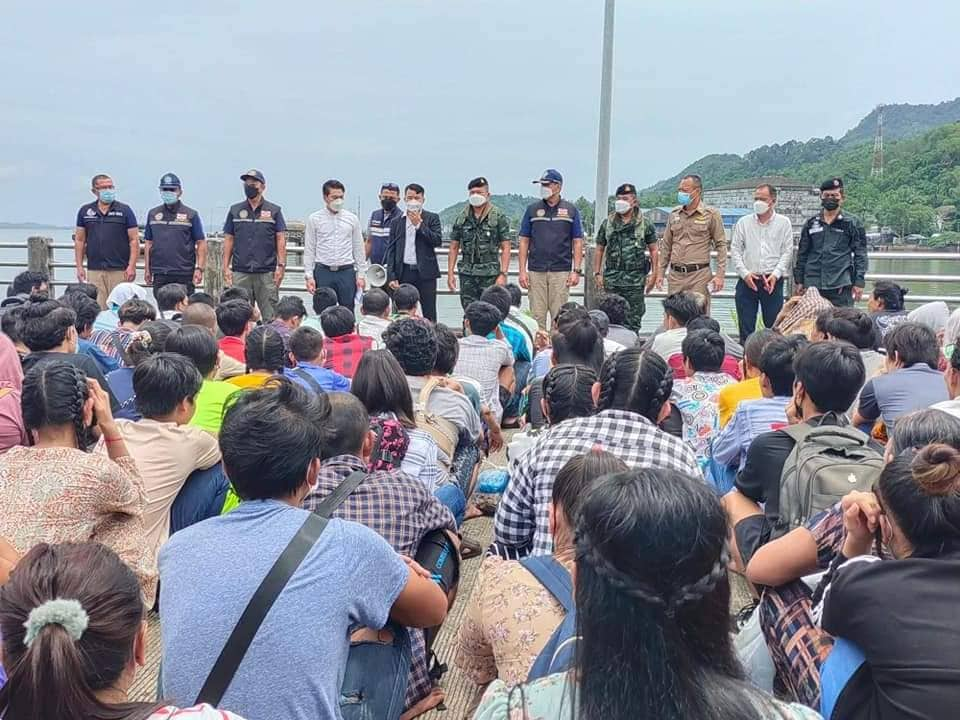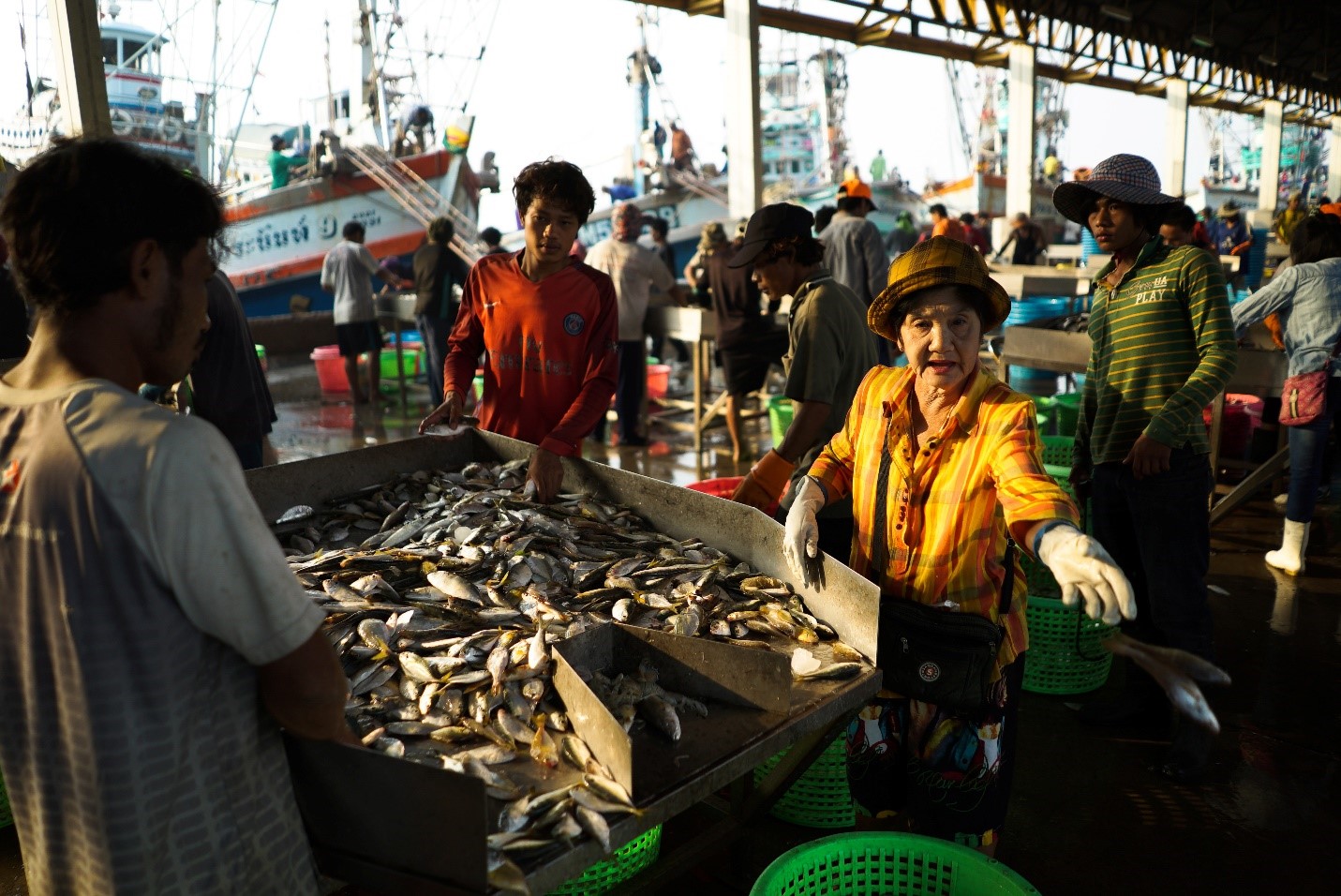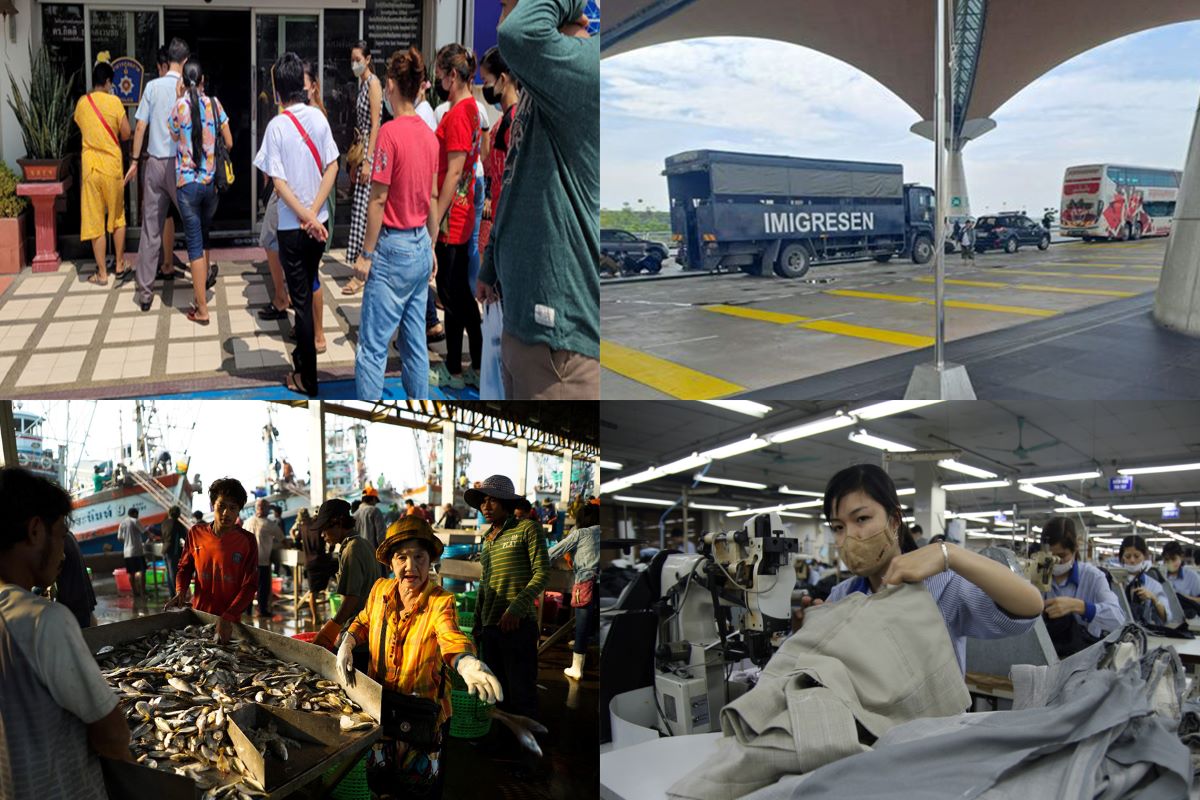CNI News
28 Oct 2022
Blacklisting Myanmar by the Financial Action Task Force may aggravate the exploitation of Myanmar migrant workers in neighbouring countries, labour activists for Myanmar workers in neighbouring countries told the CNI.
The number of illegal Myanmar migrant workers who sneaked into Thailand and Malaysia has increased since the country was blacklisted and is likely to rise further in the future, according to the labour activists.
Malaysia is holding elections soon and the fate of documented and undocumented Myanmar migrant workers depends on the government change, Labour Activist U Babu Gyi, who has been helping Myanmar migrant workers in Malaysia, told the CNI.

Myanmar workers deported to Myanmar.
He said, “There is a large number of Myanmar migrants including those who have been overstaying and new arrivals. They ask for my help almost every day. So, the number of illegal migrants is likely to rise further. The parliament has been dissolved for the elections. A new government will be formed after the elections. We will have to wait and see the policies of the new government. It may have good relations or bad relations with the junta in Myanmar. I haven’t heard anything about negotiations between them to hire workers from Myanmar. If the new government holds negotiations with the junta to hire Myanmar workers, the situation is likely to change.”
He added that the new government has bad relations with the junta, the conditions of migrant workers can be negatively affected.
Blacklisting Myanmar by the FATF affects not only the people in Myanmar but also Myanmar migrant workers in neighbouring countries, labour activists for Myanmar migrant workers in other countries told the CNI.
Thai employers have told agents to bring Myanmar migrant workers through illegal means to meet their labour demand and the number of illegal workers could rise in Thailand after Myanmar was blacklisted, Labour Activist Ko Thar Gyi in Thailand told the CNI.

A fishery shop in Thailand.
As a result, more illegal migrant workers will be arrested, he added.
He said, “There are exploitation of wages of workers and sacking without any reasons. Neither ours nor other organizations can take action against employers and their agents according to law because our workers are illegal ones. If we file cases against them, our workers will also be arrested. Blacklisting Myanmar could force more Myanmar workers to sneak into neighbouring countries. It is almost sure that more Myanmar workers will continue to sneak into Thailand. When they arrive in Thailand, they could be arrested or trafficked and blackmailed by agents. We will have to face such situations.”
Due to the depreciation of Kyat, wages of Myanmar workers in other countries seem to be large sums of money when the wages are exchanged into the local currency. However, migrant workers have to remit more money to their families in Myanmar as commodity prices are skyrocketing. Those who usually remit MMK 500,000 are having to transfer MMK 800,000 to their families at present.
Myanmar organizations in other countries should help Myanmar workers whether they are documented or undocumented as much as possible, according to labour activists.




